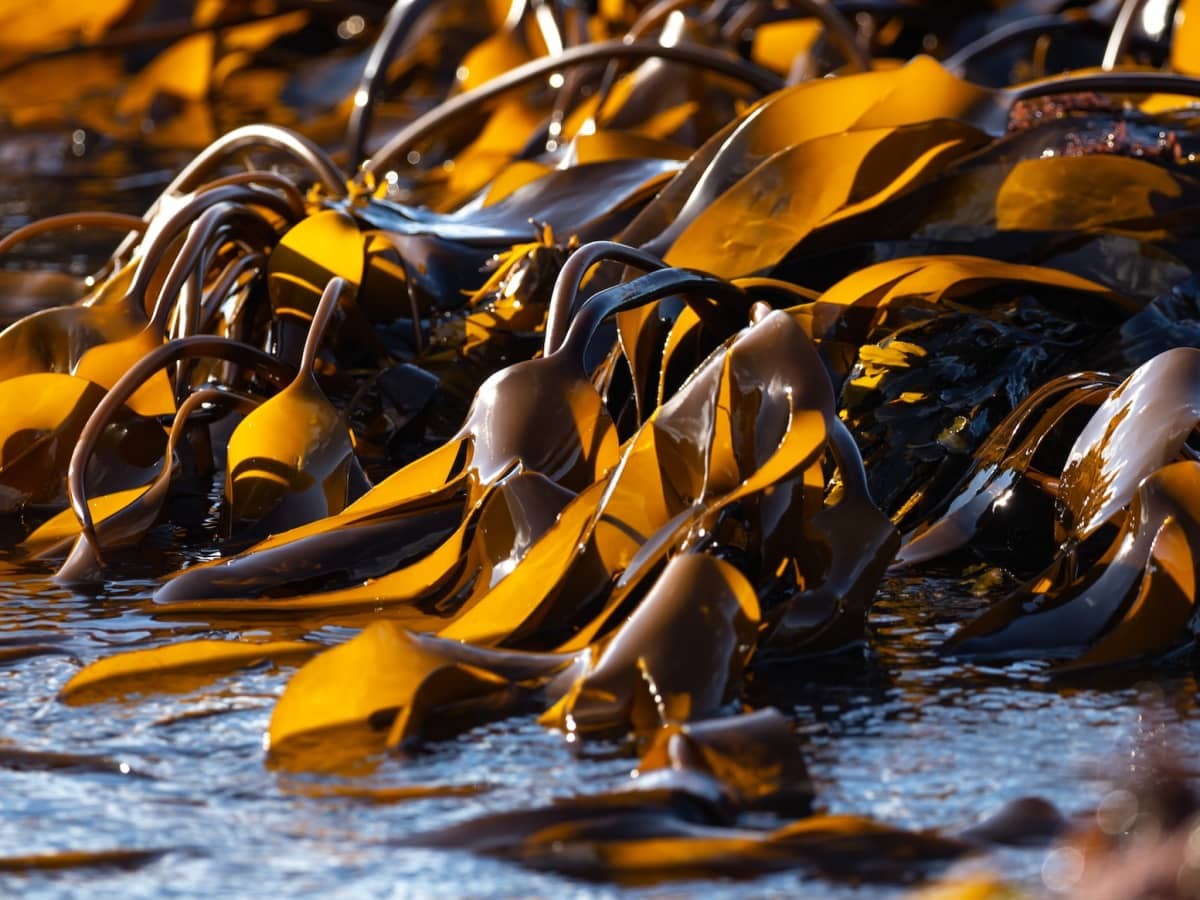Seaweed Enhances Growth of Greenhouse Plants
Seaweed and kelp are types of marine algae that are commonly used as natural fertilizers in hydroponics production. These algae are rich in essential nutrients, vitamins, and minerals that are beneficial for plant growth and health. Seaweed and kelp can be harvested from the ocean or cultivated in seawater farms, and are available in various forms such as liquid concentrates, powder, or granules.
The most important benefit of adding kelp to your hydroponic nutrient solution is its ability to improve plant health. Seaweed and kelp contain trace amounts of many different minerals including calcium, magnesium, potassium, iron, manganese, zinc, and boron.
These nutrients help your plants grow stronger roots so they can absorb more water from their growing mediums. In addition to improving plant health by providing vital nutrients for root development, seaweed also contains high levels of natural sugars which act as an excellent fertilizer source for plants during flowering stages when they need extra carbohydrates for energy production.

The auxins in kelp largely improve root, growth and therefore fruit production in greenhouse produce. As auxin is found in all root growing plants, albeit in very small particles, the added kelp auxin augments the plant extensively.
Important Benefits of Seaweed
When it comes to growing plants in hydroponic systems, there are numerous options for choosing the right nutrient additive. However, kelp additives are some of the most popular choices for gardeners who want to improve their crops’ health and yield.
Kelp additives have many benefits for hydroponic plants.
Here are some of the most significant advantages:
It improves Nutrient Uptake:
Kelp contain a variety of organic compounds such as amino acids, cytokinins, auxins, and gibberellins that enhance the plant’s ability to absorb nutrients from the hydroponic solution.
Enhances Root Growth:
The plant growth hormones present in seaweed and kelp additives stimulate root growth and development, which lead to better nutrient uptake and overall plant health.
Resistance to Stress:
Seaweed and kelp additives contain antioxidants and other compounds that help plants to better tolerate stress caused by environmental factors such as high temperatures, drought, and pests.
Improved Yield:
The use of seaweed and kelp additives has been shown to increase the yield and quality of hydroponically grown crops such as lettuce.
Applying seaweed to hydroponic plants is a simple process that can be done in various ways.
Here are some of the most common methods:
Liquid Concentrate:
Seaweed and kelp are available in liquid concentrate form that can be added directly to the hydroponic solution. Follow the instructions on the product label to determine the appropriate dosage based on the size of your hydroponic system and the type of plants you are growing.
Foliar Spray:
Kelp can also be applied as a foliar spray, which involves spraying a diluted solution of the liquid concentrate directly onto the leaves of the plants. This method allows for the quick absorption of nutrients and can be especially useful for plants that are experiencing stress.
During the Vegetative Stage:
The vegetative stage is when plants are actively growing and developing leaves and stems. Seaweed and kelp additives can be particularly beneficial during this stage, as they promote healthy root growth and help to improve the overall health of the plant.
After Transplanting:
When transplanting seedlings or mature plants into a hydroponic system, adding seaweed and kelp to the hydroponic solution can help to reduce transplant shock and promote healthy growth.
During Stressful Conditions:
When plants are exposed to stressful conditions such as high temperatures or drought, adding seaweed and kelp to the hydroponic solution or using a foliar spray can help to improve the plant’s ability to tolerate stress and recover more quickly.
Seaweed and kelp additives are an excellent way to provide your hydroponic plants with the nutrients they need to thrive. JS

